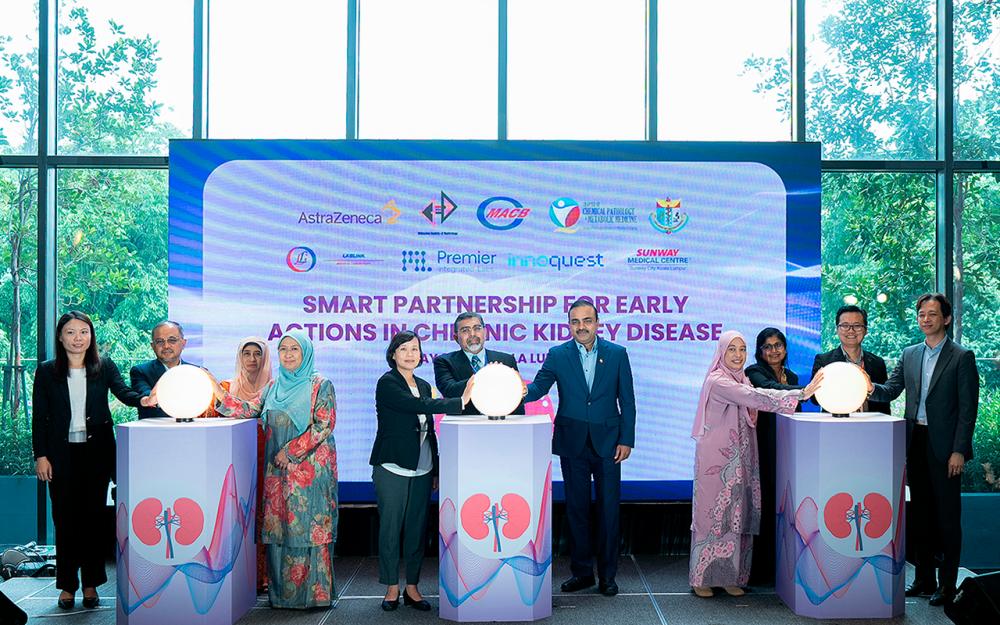ASTRAZENECA, together with three medical organisations and four diagnostic laboratory operators, has entered into a partnership for chronic kidney disease (CKD) care through use of advanced digital solutions, mainly the MyCKD CPG app and the Kidney Failure Risk Equation (KFRE).
In Malaysia, more than five million people have CKD, yet only 5% are aware of it. Over 51,000 Malaysians currently live with end-stage renal disease (ESRD) and require kidney replacement therapy. Public sector expenses for ESRD in Malaysia reached RM1.2 billion in 2016, marking a 94% increase over seven years.
Even more alarming, a significant portion of healthcare spending goes into dialysis, sidelining crucial preventive measures and early treatments.
The most common risk factors for CKD are type 2 diabetes mellitus and hypertension.
Both new and existing cases of CKD are rising, and these numbers are increasing in parallel to the growing prevalence of diabetes and other risk factors in both developed and developing countries. This has resulted in a significant burden of CKD-related illness and death, even in the early stages, a risk that is compounded by the presence of diabetes.
Since early detection and intervention in CKD are crucial for delaying the progression of CKD-related complications and reducing mortality, the smart partnership seeks to encourage healthcare professionals and policymakers to take proactive steps to promote early detection and intervention in CKD.
The MyCKD CPG app is a comprehensive one-stop digital solution developed by Malaysian Society of Nephrology (MSN) to aid approaches for CKD management for primary care physicians; ranging from tools to facilitate early diagnosis and intervention to providing access to determine risk of CKD progression using KFRE. This serves as a cornerstone to improve CKD management in Malaysia, aimed at enhancing the knowledge level, awareness and practice in the early detection and timely intervention of CKD.
The KFRE provides a clear forecast of kidney health, empowering both patients and doctors to make informed decisions that could potentially delay the need for dialysis. The KFRE has been validated in over 30 countries, establishing it as a reliable tool for assessing a patient’s risk of kidney failure. The inclusion of KFRE in lab reports will be rolled out across diagnostic laboratory operators Premier Integrated Labs, Innoquest Pathology, Lablink Medical Laboratory, and Sunway Medical Centre Laboratory.
MSN, the Malaysian Association of Clinical Biochemists, Chapter of Chemical Pathology and Metabolic Medicine, College of Pathologists, Academy of Medicine of Malaysia are also part of the partnership.









